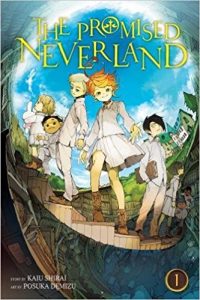Yona of the Dawn Volume 9 by Mizuho Kusanagi
Excellent manga continues to be excellent isn’t the most earth shattering reaction to the latest volume of Yona of the Dawn, but it is absolutely true. This latest episode swings between pathos and humor with the ease that I expect from Kusanagi. After meeting up with the Yellow Dragon, all of Yona’s guardians are assembled. What’s going to happen next? They wander into a village that Yun had adopted in the past only to find out that their food stores are low. Yona’s group immediately starts competeting to see who can deny that they are hungry the longest as they help to fix up the village, despite plenty of evidence of rumbling stomachs. Yona wants to see how the people are living as a manifestation of the poor choices her father made when he was king. The villagers are being preyed upon by a local gang of bandits, and Yona promptly proclaims that she’s the head of a rival gang called “The Dark Dragon and the Happy Hungry Bunch” in order to banish the bandits.
This is all pretty hilarious, especially the way the new gang starts threatening the villagers by forcing them to take extra portions of supplies and candy. But the local bandits once driven off come back in force, and things get serious. Sinha ends up confronting his terrible destructive power with Yona’s help. He’s drawn in shadow, with the focus on his eyes that allow his powers to manifest, seeming almost monstrous until Yona prevents him from using his powers in a way that he might later regret. As always with this series, while Yona has been training to build her capacity to fight, it is her insight into human nature and her genuine support of her companions that allow them to get through difficult moments.
This is such a pleasure to read, and I’m happy that Viz decided to all in on a multi-volume fantasy manga series. Seeing how the characters evolve in a series where there’s time for the mangaka to do slow and deliberate character development is extremely rewarding.





Recent Comments